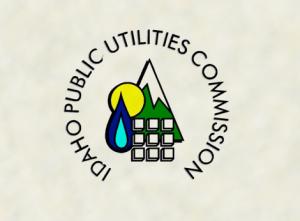Idaho Affirms Limited PURPA Contracts for Battery Storage Projects

The Idaho Public Utilities Commission has refused to reconsider a July decision in which it held that an energy storage developer was entitled to a supply purchase agreement with a local utility, but for a term of no greater than two years. The commission said its decision turned on the underlying source of power for the proposed battery storage facilities, which was solar. The commission explained that under revised guidelines it had promulgated in late 2015, renewable energy projects within Idaho are no longer automatically eligible for long-term contracts under the Public Utility Regulatory Policies Act of 1978 (PURPA).
The commission’s July order centered on a request from a jurisdictional electric utility, Idaho Power Company, that the commission address proper contract terms, conditions, and avoided-cost pricing for five pending battery storage installations. Four of those were sponsored by Franklin Energy Storage LLC, which had announced plans to build four separate battery storage projects, all within one square mile of each other, in Twin Falls County, Idaho, near Jackpot, Nevada.
In initially seeking commission review of the matter, the utility voiced concern that the 2015 guidelines were unclear as to whether they pertained exclusively to solar, wind, or other renewable energy generating facilities or also included battery storage projects that do not themselves produce electricity but may still fall within the definition of a qualifying facility (QF) as set forth in PURPA. Indeed, Idaho Power pointed out that Franklin was claiming that its energy storage projects were QFs such that they should receive 20-year contracts under the avoided-cost rate standards established in PURPA.
Idaho Power drew attention to the fact that the commission had sided with the state’s three largest investorowned utilities after they petitioned the commission to shorten the length of contracts for power purchased from projects having only intermittent output. The utilities had suggested that the contract period be reduced from 20 years to only two or five years, and that even then, to be eligible for a contract a project’s capacity could not exceed 100 kilowatts.
Upon examining the data showing a proliferation of renewable energy facilities within the state, the commission determined that a maximum term of two years would be appropriate for such contracts, concluding that power purchase agreements running any longer than two years would run too great a risk of overestimating future avoided costs, which would translate into higher costs for utilities and ratepayers alike. In explaining the rationale for its conclusion, the commission asserted that the disproportionately higher prices stemming from longer-term contracts were contrary to PURPA’s avoidedcost principles.
In responding to the Franklin/Idaho Power dispute specifically, the commission acknowledged that when it had lowered the rate eligibility cap and reduced the contract length for QFs, it had not directly addressed battery storage technology. But upon taking a closer look at the issue, the commission said it agreed with Idaho Power that energy storage projects should be treated the same as their underlying source of power.
With respect to the Franklin projects in particular, the commission stated that it was persuaded that inasmuch as the generation source that energizes the battery storage facilities is solar, any contracts entered into by Idaho Power with the energy storage developments should adhere to the same terms and conditions as would apply to a power purchase agreement with any solar facility. That is, the commission verified that Idaho Power was required to execute a contract with Franklin for no more than a two-year period.
The commission commented that the battery storage projects proposed by Franklin will in essence function in much the same way as a solar facility. Finding that the energy storage projects would have an overall generation profile substantially similar to a solar generator, the commission found that, consistent with the previously ordered two-year maximum contracts for intermittent sources, the Franklin projects would not be eligible for 20-year published rate contracts. Re Idaho Power Co., Case No. IPC-E-17-01, Order No. 33858, Aug. 29, 2017 (Idaho P.U.C.).



